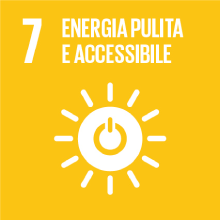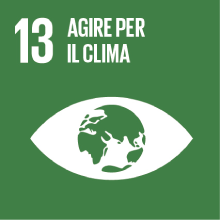EXPERIMENTAL METHODS FOR ENVIRONMENTAL CATALYSIS
- Anno accademico
- 2020/2021 Programmi anni precedenti
- Titolo corso in inglese
- EXPERIMENTAL METHODS FOR ENVIRONMENTAL CATALYSIS
- Codice insegnamento
- CM1308 (AF:335158 AR:177550)
- Modalità
- In presenza
- Crediti formativi universitari
- 6
- Livello laurea
- Laurea magistrale (DM270)
- Settore scientifico disciplinare
- CHIM/03
- Periodo
- II Semestre
- Anno corso
- 2
- Spazio Moodle
- Link allo spazio del corso
Inquadramento dell'insegnamento nel percorso del corso di studio
The course aims to develop skills that allow the students to know and to interpretate different types of catalytic reactions such as biomass valorization, abatement of pollutants for air, hydrogen production and CO2 reduction, among others.
Students will be able to analyse and understand specific characterization techniques such as XPS, Raman spectroscopy, Thermal Programmed Desorption of ammonia (NH3-TPD), Thermal Programmed Reduction (TPR) and Solid State NMR, identifying advantages, limits and applications of each technique.
To achieve these objectives, a number of practical sessions are planned within the course, including the critical interpretation of recent papers on environmental catalysis by the student.
Risultati di apprendimento attesi
I) Being able to demonstrate a comprehensive knowledge and understanding of the current state-of-the-art in Catalysis, including different aspects on synthesis, characterization and applications.
II) Being able to evaluate catalytic results.
III) Understanding the existing relationships between the structure and catalytic reactivity of a selected materials in different catalytic processes.
IV) Knowledge the of advanced characterization techniques
V) Knowledge of basic and advanced concept in Green Chemistry applied to Catalysis
VI) Knowledge the synthesis methodologies based on non-toxic elements
2. Ability to apply knowledge and understanding.
I) Being able to use the concepts learned to a right interpretation of the catalytic results
II) Demonstrate skills in the different catalytic reactions of environmental interest such as the selective catalytic reduction of NOx (NOx-SCR), abatement of volatile organic compounds (VOCs), production of biofuel, hydrotreatment of fuels (HDS, HDN, HDO), hydrogen production and CO2 valorization.
3. Ability to judge.
I) Being able to use the acquired knowledge to evaluate catalytic results (Turn Over Frequency, selectivity and conversion data).
II) Being able to evaluate the potential use of different catalysts in reactions of environmental interest.
III) Being able to discuss papers on environmental catalysis
4. Communication skills
I) Being able to use the appropriate scientific-technical terminology and symbology in Catalysis, both verbally and in written form, to discuss the course contents.
II) Being able to interact constructively with the teacher and with the other students.
5. Learning skills
I) Being able to synthesize in an autonomous way the salient aspects of the concepts expressed in class.
II) Being able to make logical connections between the topics of the course.
Prerequisiti
Contenuti
1.- Preparation of catalysts by different routes.
2.- Characterization of catalysts by specific techniques (XPS, NH3-TPD, CO2-TPD, H2-TPD, H2-TPR, Raman, Pyridine coupled FT-IR, Solid State NMR, Porosity, among others).
3.- Catalytic system of environmental interest (selective catalytic reduction of NOx (NOx-SCR), abatement of volatile organic compounds (VOCs), production of biofuel, hydrotreatment of fuels (HDS, HDN, HDO), hydrogen production and CO2 valorization).
4.- Discussion of recent papers on Environmental Catalysis.
Testi di riferimento
Environmental Catalysis. V.H. Grassian, CRC Pres, 2019 , ISBN 9780367392741.
Environmental Catalysis. F.J.J.G. Janssen, R.A. van Santen, Imperial College Press, 2019, ISBN: 1-86094-125-7.
Acces to the most relevant journals in Catalysis such as: Journal of Catalysis, Applied Catalysis B: Enviromental, Applied Catalysis A: General, ACS Catalysis, Catalysis, Science &Technology, Catalysists, among others.
Modalità di verifica dell'apprendimento
Metodi didattici
Lingua di insegnamento
Altre informazioni
Accessibility, Disability and Inclusion.
Accommodation and support services for students with disabilities and students with specific learning impairments:
Ca’ Foscari abides by Italian Law (Law 17/1999; Law 170/2010) regarding support services and accommodation available to students with disabilities. This includes students with mobility, visual, hearing and other disabilities (Law 17/1999), and specific learning impairments (Law 170/2010). In the case of disability or impairment that requires accommodations (i.e., alternate testing, readers, note takers or interpreters) please contact the Disability and Accessibility Offices in Student Services: disabilita@unive.it.
Modalità di esame
Obiettivi Agenda 2030 per lo sviluppo sostenibile
Questo insegnamento tratta argomenti connessi alla macroarea "Cambiamento climatico e energia" e concorre alla realizzazione dei relativi obiettivi ONU dell'Agenda 2030 per lo Sviluppo Sostenibile


